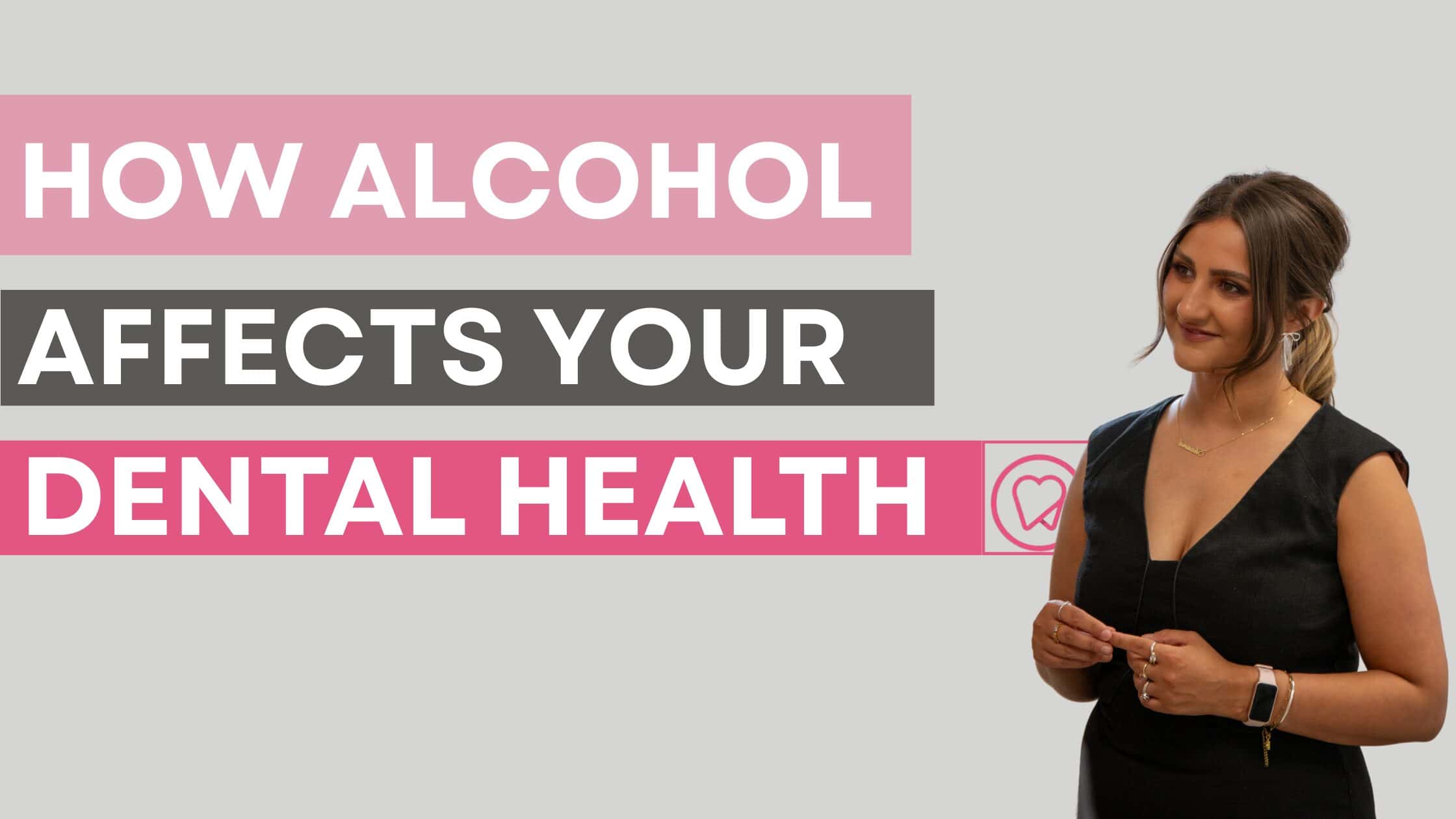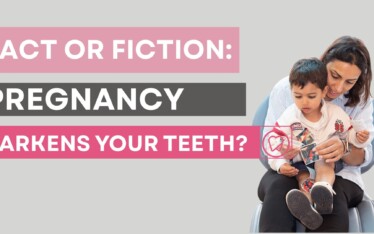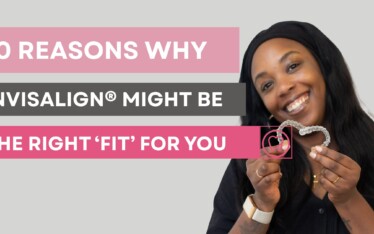How Alcohol Affects Your Dental Health
For many people, enjoying a glass of wine with dinner or meeting friends for cocktails is part of their social life. But while we often think about the impact of alcohol on our liver, weight, or skin, its effects on our teeth and gums are sometimes overlooked.
The truth is, alcohol can have a significant impact on your oral health both in the short and long term. From staining your smile to increasing your risk of gum disease, the link between alcohol and dental health is stronger than you might think.
Let’s explore the different ways alcohol can affect your teeth and gums, and what you can do to protect your smile while still enjoying a drink in moderation.
Alcohol and Tooth Staining
Certain alcoholic drinks are notorious for causing teeth staining. Red wine, dark beers, and richly coloured cocktails contain chromogens; compounds that stick to enamel and cause discolouration. These stains can be especially stubborn because alcohol also dries out your mouth, which means less saliva is available to wash away pigments.
Even lighter-coloured drinks like white wine can contribute to staining indirectly. White wine is acidic, which softens the enamel, making it easier for stains from other foods and drinks to cling to your teeth.
Tip: Rinsing your mouth with water between sips and after drinking can help reduce staining.
- Dry Mouth and Saliva Reduction
Saliva plays a crucial role in keeping your teeth healthy as it helps wash away food particles, neutralises acids, and supports the remineralisation of enamel. Alcohol is a diuretic, which means it dehydrates your body, including your mouth. The result? dry mouth!
A dry mouth creates the perfect environment for bacteria to thrive. Without enough saliva, plaque can build up more quickly, increasing your risk of tooth decay and bad breath.
Tip: Alternate alcoholic drinks with water and chew sugar-free gum to encourage saliva production.
- Increased Risk of Tooth Decay
Many alcoholic drinks, particularly sweet cocktails, ciders, liqueurs, and mixers like cola or lemonade are loaded with sugar. When you consume sugary drinks, the bacteria in your mouth feed on the sugars and produce acids that attack your tooth enamel.
Combined with alcohol’s tendency to reduce saliva, this creates a double risk: more sugar sitting on your teeth for longer periods. Over time, this can lead to cavities and decay.
Tip: If you’re drinking alcohol, opt for low-sugar choices such as spirits with soda water or dry wine, and avoid sipping sugary drinks over long periods.
- Acid Erosion
Alcohol; especially wine, beer, and certain mixers can be acidic. Acid softens your enamel, which can lead to acid erosion. Once enamel is worn away, it cannot grow back, and the softer dentine underneath becomes more exposed. This can make your teeth more sensitive to hot and cold temperatures and more prone to decay.
For example:
- White wine and champagne are both acidic and often consumed slowly over a long period, prolonging enamel exposure;
- Citrus-based cocktails contain both alcohol and citric acid, which can be especially damaging.
Tip: Avoid brushing your teeth immediately after drinking acidic drinks, as enamel is temporarily softened. Wait at least 30 minutes and rinse your mouth with water in the meantime;
- Gum Disease and Oral Infections
Excessive alcohol consumption has been linked to periodontal (gum) disease, which is one of the leading causes of tooth loss in adults. Alcohol can contribute to gum problems in several ways:
- It dries out the mouth, allowing harmful bacteria to multiply;
- It can irritate gum tissues directly;
- Poor nutrition and lower immunity in heavy drinkers can reduce the body’s ability to fight off infections;
Over time, untreated gum disease can progress from gingivitis (inflamed gums) to periodontitis (damage to the bone and supporting structures of the teeth).
Tip: If you notice bleeding gums, swelling, or persistent bad breath, book an oral health assessment promptly.
- Mouth Cancer Risk
One of the most serious links between alcohol and oral health is the increased risk of mouth cancer. According to Cancer Research UK, drinking alcohol is one of the biggest risk factors for developing cancers of the mouth, throat, and oesophagus especially when combined with smoking.
Alcohol can damage the cells in the mouth, making it easier for harmful substances (like those in tobacco) to penetrate and cause long-term damage.
Tip: Limiting alcohol intake, avoiding tobacco, and attending regular oral health assessments can help reduce your risk.
- Teeth Grinding (Bruxism)
While not a direct cause, alcohol can contribute to teeth grinding during sleep. Alcohol can interfere with sleep patterns, increasing the likelihood of clenching or grinding your teeth at night. Over time, bruxism can cause tooth wear, jaw pain, and headaches.
Tip: If you suspect you grind your teeth, speak to your dentist about a custom nightguard to protect your enamel.
How to Protect Your Teeth if You Drink Alcohol
Enjoying a drink doesn’t mean your dental health has to suffer, it’s all about moderation and taking the right steps to care for your teeth.
- Drink in Moderation
The NHS advises not to regularly drink more than 14 units of alcohol per week, and to spread those units over several days. - Stay Hydrated
Alternate alcoholic drinks with water to stay hydrated and keep your mouth moist. - Use a Straw for Sugary Drinks
Drinking through a straw can reduce contact between sugary or acidic drinks and your teeth. - Rinse Your Mouth with Water
A quick rinse after drinking helps wash away sugars, acids, and pigments. - Keep Up with Oral Hygiene
Brush twice a day with fluoride toothpaste and floss daily. If you’ve been drinking acidic drinks, wait 30 minutes before brushing to avoid damaging softened enamel. - See Your Dentist Regularly
Routine oral health assesments at Inspired Dental Care allow us to spot early signs of enamel erosion, gum disease, or staining and treat them before they cause lasting damage.
Alcohol-Free Alternatives
If you’re looking to reduce your alcohol intake without missing out socially, there are now plenty of alcohol-free options available. Alcohol-free wines, beers, and mocktails can be great substitutes but remember, some still contain sugars and acids, so they should be enjoyed in moderation too.
The Bottom Line
Alcohol can affect your dental health in multiple ways; from staining and decay to increasing your risk of gum disease and mouth cancer. The good news is that by drinking in moderation, making smart choices, and keeping up with your dental care, you can minimise the risks and protect your smile.
Your oral health is just as important as your general health, and the two are closely linked. So, next time you raise a glass, remember to give your teeth a little extra care too.
How Inspired Dental Care Can Help
At Inspired Dental Care in Exeter, we’re passionate about helping you enjoy life while maintaining a healthy, confident smile. We can help prevent and treat alcohol-related dental issues with:
- Professional teeth cleaning and stain removal with the latest technologies and equipment;
- Advice on diet and oral hygiene;
- Early detection of gum disease and mouth cancer;
- Safe, effective teeth whitening after a thorough dental assessment;
If you’re concerned about staining, sensitivity, or gum health, book an appointment with our friendly team today.
Call us on 01392 272385 or visit our website to arrange your oral health assessment. Together, we can keep your smile looking its best,whatever’s in your glass.



